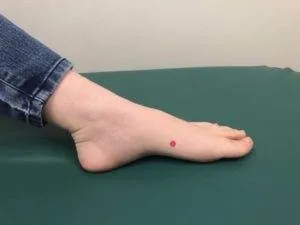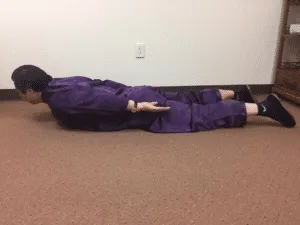-
 Art of Wellness Acupuncture & Traditional Chinese Medicine (TCM)11704 Wilshire Blvd, Suite 295, Los Angeles, CA, 90025
Art of Wellness Acupuncture & Traditional Chinese Medicine (TCM)11704 Wilshire Blvd, Suite 295, Los Angeles, CA, 90025
myartofwellness@gmail.com310-451-5522 Office Hours
MonClosedTue7:30 am --4 pmWed7:30 am --4 pmThu7:30 am -- 4 pmFri7:30 am -- 4 pmSat7:30 am -- 4 pmSunClosedOur office opens from Tuesdays to Saturdays 7:30 am to 4 pm, will be closed on Memorial day, Independent day, Labor day, Thanksgiving day, Christmas and New year.
-
Recent Posts
- Chinese New Year 2026: Year of the Horse
- Acupuncture and TCM Treatment for Perimenopause Symptoms
- How to Treat Insulin Resistance With Acupuncture and TCM
- How to Treat Metabolic Syndrome With Acupuncture and TCM
- How to Treat Syncope With Acupuncture and TCM
- How to Treat Thoracic Outlet Syndrome With Acupuncture and TCM
- How to Treat Dupuytren’s Contracture With Acupuncture and TCM
- How to Treat Nutcracker Syndrome With Acupuncture and TCM
- How to Treat Rosacea With Acupuncture and TCM
- How to Treat Perioral Dermatitis With Acupuncture and TCM
- Lymphatic Drainage With Acupuncture and TCM
- How to Treat Turf Toe With Acupuncture
- How to Treat Nerve Pain With Acupuncture and TCM
- How to Treat Watery Eyes With Acupuncture and TCM
- How to Treat Ovarian Cysts With Acupuncture and TCM
- How to Treat Dystonia With Acupuncture and TCM
- Sign up to receive news and updates and get my free report:“The Top 10 Reasons to Try Acupuncture”

December 2025 M T W T F S S 1 2 3 4 5 6 7 8 9 10 11 12 13 14 15 16 17 18 19 20 21 22 23 24 25 26 27 28 29 30 31
Acupressure
How to Treat Carpal Tunnel Syndrome With Acupuncture & TCM
By Qineng Tan, L.Ac., Ph.D. & Xiaomei Cai, L.Ac., Ph.D.
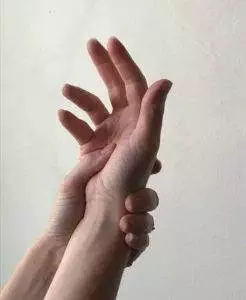
Tingling in fingers? Wrist Pain? Do you keep dropping things? It could be carpal tunnel hand pain and weakness caused by a repetitive stress injury. Carpal Tunnel Syndrome is a condition caused by an impingement of the median nerve, which travels through the wrist joint to give sensation to the hand and fingers. When this nerve is compressed, there may be pain or numbness in the fingers and hand. Carpal Tunnel Syndrome often gets worse as time goes on. It is important to seek out treatment for carpal tunnel to help reverse the progression of the problem.
Carpal tunnel is the most common form of peripheral neuropathy in the United States, affecting over eight million people per year. Almost a quarter of a million people undergo surgery to try to correct carpal tunnel syndrome annually. Carpal tunnel affects women more often than men, and unfortunately can cause disability, making it difficult or impossible for people to continue their work. Acupuncture treatment combined with Chinese herbal remedies has been shown to significantly reduce the tingling pain in fingers and weakness of the hands caused by carpal tunnel syndrome.
Do I have Carpal Tunnel Syndrome?
Carpal Tunnel Syndrome is a type of compression mononeuropathy, in which damage to a single nerve causes pain, numbness, and weakness of a particular part of the body: in this case, the wrist, hand, and fingers. Carpal Tunnel can also cause neck and shoulder pain and various types of headaches.
While pain and tingling in the fingers are the most common signs of carpal tunnel, it is also true that several other neurological conditions can cause pain and numbness in the hands. Compression of one of the nerves travelling through the cervical spine can also affect the hands. Impingement of the ulnar nerve, which travels down the arm and alongside the elbow (the “funny bone”), is known as cubital tunnel syndrome, and can also cause tingling in the fingers. The difference here is that usually carpal tunnel causes the sensations in the thumb, index and middle fingers, while cubital tunnel causes numbness or pain in the ring and pinky fingers. Thoracic outlet syndrome, which causes impingement of nerves between the collarbone and upper ribs, and Reynaud’s phenomenon, which causes restriction of blood flow through the blood vessels of the extremities, are rarer conditions which can also cause numbness in the fingers.
Top 5 Symptoms of Carpal Tunnel:
- Tingling and numbness in the hand and fingers, especially the thumb, index, and ring fingers. May feel like a burning sensation, or occasional short “shocks”
- Weakness of the hand, tendency to drop objects
- Wrist pain, hand pain, and pain in the forearm
- Fingers feel swollen, even if they don’t appear puffy
- Tingling that travels up the arm, neck and shoulder pain
Carpal tunnel syndrome symptoms usually begin subtly and develop gradually over time. Often people first notice some tingling or a sense that the fingers are swollen, especially at night. You might feel the urge to “shake out” your hands and wrists when you get up. As carpal tunnel becomes more serious, people will start to feel weakness in their hands as they go about their daily activities. In extreme cases, people with carpal tunnel may lose muscle mass in their thumb pad area, or cease to be able to sense hot or cold with their hands, which puts them at risk for burning themselves.
Carpal Tunnel Syndrome and Migraines
Recent research has suggested that there may be a link between carpal tunnel and migraine headaches. A study found that people with carpal tunnel were two times as likely to also suffer from migraines, and that people with migraines were twice as likely to also have symptoms of carpal tunnel. This information may help medical professionals learn more about migraine, which remains a mysterious condition, and has not been traditionally viewed as a problem with nerve compression.
While conventional medicine still has limited understanding of migraine, acupuncture is an effective modality for headache relief. A TCM practitioner can help headache, wrist pain, hand pain, neck and shoulder pain, all simultaneously, without any negative side effects.
Carpal Tunnel Causes and Treatment for Carpal Tunnel
Repetitive movements that cause inflammation in the wrist joint are the primary causes of carpal tunnel syndrome. This kind of repetitive stress injury occurs when you perform the same motions with the wrist and hand over and over, as when working with tools or assembly, chopping with a knife, playing an instrument, or typing on a keyboard. When you seek treatment for carpal tunnel, diagnostic testing will first be done to determine exactly what bones, nerves, muscles, or tendons might be causing symptoms of pain and tingling. Diabetes can also be a cause of mononeuropathies like carpal tunnel.
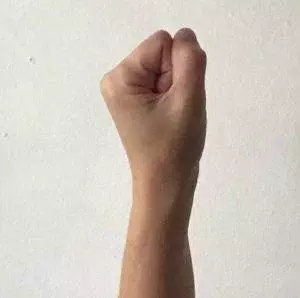
The first treatment for carpal tunnel usually involves some immobilization of the wrist (with a wrist splint or brace) and anti-inflammatory medications or injections. If the condition does not improve after reduction and modification of the repetitive motions that were causing carpal tunnel symptoms, then a specialist may recommend surgery. Electroscopic procedures may make small incisions in the tendon of the wrist to relieve pressure on the median nerve.
Early treatment of carpal tunnel is crucial for preventing further damage to the median nerve. Addressing symptoms of carpal tunnel syndrome as soon as possible with alternative modalities such as acupuncture and therapeutic tui na massage can help restore full function of the nerves and the mobility and strength of the hands and fingers.
How Acupuncture Helps Carpal Tunnel

Traditional Chinese Medicine uses a combination of therapies to address conditions like carpal tunnel syndrome. Acupuncture treatment works on the principle that pain and loss of mobility in the body is often due to blocked energy (Qi) along the meridians (energy pathways) of the body. Acupuncture treatment combined with herbal supplementation can reduce inflammation and help with the regeneration of nerve and other tissues.
According to TCM theory, carpal tunnel syndrome is usually attributed to “wind” or cold invading the muscles and ligaments, along with Qi and/or blood stasis causing blockages. One study showed that acupuncture treatment combined with a topical herbal treatment reduced pain in 90% and improved wrist function in 85% of the participants.
Another study in an American hospital, aimed at proving scientifically the unknown ways in which acupuncture works, used electrodes to show how treatment affected nerve impulses and produced changes in the somatosensory cortex. This study objectively quantified that acupuncture improved the conductivity of nerves in the wrist and effected changes in the brain deemed related to their carpal tunnel syndrome.
Top 5 Tips for Carpal Tunnel Relief
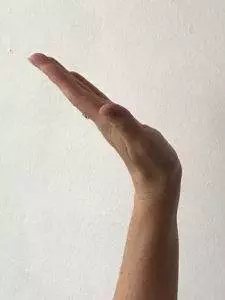
Here are some carpal tunnel exercises and acupressure points for carpal tunnel that you can practice to help prevent carpal tunnel and relieve carpal tunnel symptoms.
- Your doctor may recommend nerve gliding exercises, sometimes called nerve flossing or neural gliding. These gentle exercises are designed to help facilitate the smooth movement of the tendon through the carpal tunnel of the wrist bones, so as to alleviate pressure and inflammation of the median nerve.
- Using acupressure points for carpal tunnel can help relieve symptoms. Try applying firm pressure to PC6 Nei Guan, located on the inner arm, three finger-widths below the wrist.
- Be especially mindful when you are performing repetitive tasks with your hands. Take frequent breaks to stretch and rub your wrists.
- Pay attention to your sleep position. Avoid putting pressure on your wrists or holding them in a bent position during the night. Elevate your hands and wrists if possible.
- Keep your hands and wrists warm. Wear gloves whenever appropriate to the temperature in your environment. Keep a cup of hot tea nearby while you work, to warm your hands.
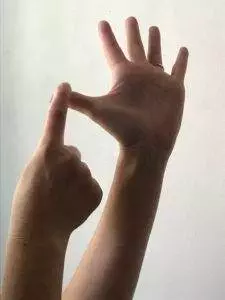
Acupuncture Near Me for Carpal Tunnel Syndrome
Carpal Tunnel tends to worsen over time as we age and continue to engage in repetitive movements through our daily activities. If you or someone you know is experiencing tingling in the fingers, hand pain, or wrist pain–or even having migraine headaches or neck and shoulder pain that may seem unrelated–it is important to address it promptly. Integrative care combining conventional medicine and acupuncture treatment for carpal tunnel can help to reduce hand pain, numbness in the fingers, and weakness in the wrist. Contact Art of Wellness to get started with the best acupuncture near me in the Los Angeles area for carpal tunnel syndrome and related migraine headache relief.
*This article is for education from the perspective of Traditional Chinese Medicine only. The education provided by this article is not approved by FDA to diagnose, prevent, treat and cure human diseases. It should not stop you from consulting with your physician for your medical conditions. Traditional Chinese Medicine is based on Qi, which is an invisible force that usually cannot be observed by modern science. Because science focuses on testing ideas about the natural world with evidence obtained through observation, these aspects of acupuncture can’t be studied by science. Therefore acupuncture and Chinese herbs are often not supported by double-blind, randomized trials, and they are considered alternative medicine therapies in the United States.
How to Manage IBS Diet With Acupuncture and TCM
By Qineng Tan, L.Ac., Ph.D. & Xiaomei Cai, L.Ac., Ph.D.
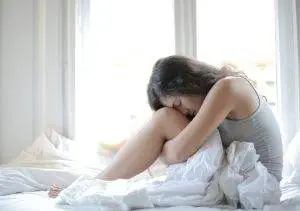
What is irritable bowel syndrome (IBS)? IBS is a chronic gastrointestinal problem that causes uncomfortable changes in the body’s elimination process. One day you’re constipated, then a day or two later, you may have diarrhea. Pains move around the whole abdominal area, and your belly feels full and tight with excess gas. IBS treatment typically involves taking medications and following a special IBS diet, but many people continue suffering with no IBS cure. In this article, we’ll talk about how to get rid of IBS naturally with acupuncture and TCM.
IBS is a common digestive problem that can cause a lot of pain and anxiety around your daily bathroom habits. IBS can cause stress and even depression, compromising your ability to live life without worrying about when you’re going to have to go to the bathroom. Conversely, stress and anxiety function as triggers for bouts of IBS, so the problem becomes cyclical.
This gastrointestinal problem is called Irritable Bowel Syndrome because people who suffer from this disorder seem to have a more sensitive intestinal tract that is highly reactive to IBS triggers. Sometimes this condition is referred to as “spastic colon.” People who have primarily loose stools as a result of this condition are said to have “IBS-D” (diarrhea-predominant IBS), while people who suffer more from sluggish bowels have “IBS-C” (constipation-predominant IBS).
Many people never seek help from their medical providers for IBS treatment, perhaps because they think their discomfort is normal. The ever-changing nature of IBS means it’s hard to get a handle on what is actually happening. The pain in the gut seems to move around all the time, and bathroom habits can feel totally unpredictable. IBS can also lead to the bleeding and discomfort of hemorrhoids.
IBS Causes
According to conventional medicine, there is no one specific cause for Irritable Bowel Syndrome. Having a more highly reactive intestinal tract may be due to many factors, some more clearly mechanical in nature, others more having to do with psychological factors. Inflammation in the gut, gastroenteritis, stressful or traumatic situations, heightened sensitivity to movements and sensations within the abdomen, and miscommunications of the autonomic nervous system between the digestive organs and brain may all play a role in IBS.
We usually think of serotonin as being a hormone in the brain that affects mood and the ability to fall asleep. But serotonin is a neurotransmitter that also plays a key role in the function of the gut, affecting how the intestines move and secrete gastric juices, as well as how we viscerally perceive these functions. Changes or abnormalities in serotonin release or uptake seem to be one of the issues related to IBS.
Top 5 IBS Triggers are:
- Stress
- Abnormal levels of serotonin in the digestive tract
- An infection or abnormal level of bacteria in the digestive tract
- Strong reactions to certain foods/Celiac disease
- Weak colon muscle action
IBS involves, on some level, problems with both the motor function of the bowel itself and the extent to which a person is physically aware of “stuff going on” in their intestines and colon. Inflammation from infections or hormone changes caused by the menstrual cycle can also directly affect bowel motility. Those same things can cause a person to be hypersensitive to every little movement of the intestines, making them feel like painful cramps.
IBS and Gut Health
The balance of gut bacteria, or “flora” in the intestines, has been more recently shown to play a vital role in overall health. Gut bacteria are instrumental in the proper functioning of the immune system and the assimilation of nutrients from our food. The balance of the gut flora can be disturbed by taking antibiotics or a gastric infection, such as norovirus or other flu-type illnesses. Medical science is still making strides in learning how the health of the gut is very closely connected with the brain. It is becoming clear that gut health is inextricably related to mental health.
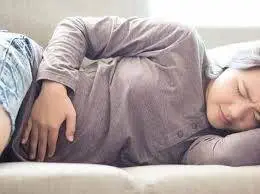
We know that stress, both chronic and acute, can cause all kinds of health issues. The mind-body connection is particularly apparent when it comes to IBS triggers. Feelings of anxiety create a ripple effect through the middle of the body, affecting the whole digestive system, causing pain and volatile action. Fear, shame, and even feelings of panic about having to run to the bathroom keep the whole process in a repeating loop.
IBS treatment often involves antibiotics or probiotics, but this has not been shown to be effective long-term. Many times doctors will prescribe medicines for anxiety (like Valium or Atavan) or depression to help provide IBS relief. However, these pharmacological treatments do not really address the root causes of the syndrome, and they may cause negative side effects, and sometimes create a dependency on the medication.
Top 5 Signs of IBS
A syndrome is a collection of symptoms that often appear together for which there is no clear medical explanation. According to conventional medicine, irritable bowel syndrome is evident when a person has frequent abdominal discomfort, which could mean a “stomach ache” or cramping, and bouts of constipation or diarrhea, or sometimes both, in alternation. In other words, IBS is signified by changes in the frequency or consistency of bowel movements, accompanied by marked discomfort before having them.
Top 5 Symptoms of IBS are:
- Abdominal pain
- Bloating and excess gas
- Constipation and/or diarrhea
- Mucus in the stool or other irregularities
- Nausea
IBS is more common among women than men. This may be due to fluctuations in hormones that affect the chemical balance and muscle action of the intestines. Women may experience more IBS symptoms in conjunction with their menstrual periods, or as a PMS symptom.
Conventional treatment for IBS typically involves the offering of various medications to deal with these symptoms. Anti-spasmodics may be used to help reduce cramping and contractions in the bowel, and anti-diarrheal medications such as Imodium may slow down the movements of the bowel, but these IBS medications do not help to restore true balance to the digestive system.
How to Treat IBS With Acupuncture
TCM and acupuncture work according to holistic principles, meaning that we are careful to look at the whole picture of what is going on with a person: emotionally, spiritually, physically, nutritionally, and energetically. According to TCM philosophy, the spleen is the organ responsible for processing our food and turning it into energy. IBS treatment with acupuncture is a matter of aligning the communications between the Shen (the mind) and the Spleen. Deficiency of the spleen is the primary TCM diagnosis for most patients with IBS symptoms. It is equally important to address problems of the Shen at the same time.
The most common TCM differentiations of IBS patterns are:
- Spleen Deficiency with Liver Qi stagnation: symptoms of this condition include diarrhea, mucus in the stool, abdominal pain, cramping, gassiness, bloating, irritability, and depression with lots of heavy sighing.
- Spleen Deficiency with Stomach deficiency: shows symptoms like watery stools, feeling of fullness and distension after eating, poor appetite, a pale complexion and fatigue.
- Spleen Deficiency with Kidney Deficiency: symptoms include diarrhea, especially in the morning, partially digested food in the stool, aches and pain in the abdomen, lower back, and knees, with a sense of coldness.
Moxibustion is a TCM treatment used in addition to acupuncture to treat IBS. One study showed that acupuncture treatment combined with moxibustion to get rid of IBS was extremely effective for reducing both the discomfort and frequency of bowel movements.
Another study that tested both herbal formulations and acupuncture treatment on patients with IBS showed that both methods were effective at reducing symptoms.
Acupuncture treatment will also focus on reducing stress, anxiety, and fatigue. Acupuncture has been shown to help restore the balance of serotonin levels, as well.
IBS Diet According to TCM
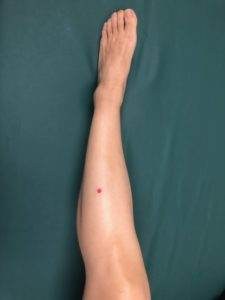
Chinese herbs, as always, are also integral to the successful treatment of IBS. In the TCM philosophy of healthcare, nutrition is considered to be just as important as acupuncture, moxibustion, herbal formulae, and other forms of therapeutic treatment. Herbs are a way to get nutrients into the body that are not necessarily present in the foods we commonly eat. TCM practitioners are trained extensively in the energetic and nutritional values of food and will spend time working with patients to modify eating habits and focus on a special IBS diet. Apart from reducing common problems like excessive coffee and alcohol intake, your acupuncturist will work with you to discover which foods act as IBS triggers for you and help you to make the most beneficial modifications to your IBS diet plan.
Top 5 Acupressure Points to Help IBS
Acupressure can be a very effective means how to treat IBS naturally yourself. Acupressure uses the same collection of points located along the meridians of the body as acupuncture to help eliminate blockages and encourage blood and Qi to move freely through the body. These points located along the spleen, bladder, stomach and “conception vessel” meridians can help provide IBS relief. The conception vessel meridian runs up the front and center of the torso, from the pubic area to the mouth. Also known as the “Sea of Yin,” this channel is instrumental in directing all the yin energy in the body. As it is very exposed, this energy center can feel vulnerable, and may be where we tighten up, hunch over, and try to hide and protect ourselves. Tension along this channel can be a major energetic factor in the cramping and spasming actions of IBS.
Try these top 5 acupressure point for IBS relief:
- CV6 – located two finger-widths beneath the navel, gently rubbing this point with circular motions helps to relieve belly pain, cramping,

Spleen 4 acupressure point and constipation.
- CV12 – located at the midpoint between the lower end of the sternum and the navel, rubbing this point in a circular motion can help relieve gas pain, bloating and acid reflux.
- SP4 – located on the inner edge of the foot, right above where the arch begins, stimulating this spleen point can help relieve gastric spasms and diarrhea.
- UB25 – these two points in the lower back, right beneath LV-4, can help relieve abdominal distension, constipation, and lower back pain.
- ST37 – also known as the “Upper Great Hollow,” these points are located along the outside edges of the shin bones, a few inches below the knees. Pressing firmly here can help relieve abdominal pain, constipation and diarrhea.
Acupuncture Near Me for How to Solve IBS
If the IBS signs described here sound familiar because you or someone you know has been suffering from frequent abdominal discomfort and constipation or diarrhea, or both, it is important to seek help and advice from your healthcare providers. When conventional IBS treatment doesn’t seem to be helping, acupuncture and TCM may help you find IBS relief. Call us at Art of Wellness to get started with an IBS diet plan and course of acupuncture treatment.
*This article is for education from the perspective of Traditional Chinese Medicine only. The education provided by this article is not approved by FDA to diagnose, prevent, treat and cure human diseases. It should not stop you from consulting with your physician for your medical conditions. Traditional Chinese Medicine is based on Qi, which is an invisible force that usually cannot be observed by modern science. Because science focuses on testing ideas about the natural world with evidence obtained through observation, these aspects of acupuncture can’t be studied by science. Therefore acupuncture and Chinese herbs are often not supported by double-blind, randomized trials, and they are considered alternative medicine therapies in the United States.
Acupuncture and TCM for Cancer – Integrative Oncology
By Dr. Qineng Tan, L.Ac., Ph.D. and Xiaomei Cai, L.Ac., Ph.D.
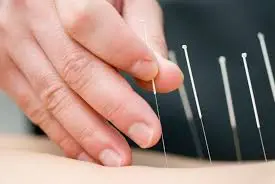
Until very recently, it seemed cancer was the one illness that had touched everyone’s life in some way. Cancer is the leading cause of death in the world. Almost 40% of the population will be diagnosed with some form of cancer at least once in their lives. We have all lost friends and relatives to this seemingly relentless form of disease. Doctors, scientists, researchers, and organizations have worked tirelessly in recent decades to develop life-saving treatments, and millions of people go on to live full lives as cancer survivors.
Cancer is a broad term that refers to the unchecked growth of abnormal cells in the body. When the body’s mechanisms for getting rid of old cells begins to break down, these damaged cells begin to divide, in some cases forming masses, or tumors. These types of cancer are usually classified by the organs affected by the tumor, including gynecological cancers such as breast cancer, ovarian cancer, cervical cancer, and endometrial cancer, as well as prostate cancer in men, lung cancer, cancers of the gastrointestinal tract (pancreatic, stomach, esophageal, colon, rectal), thyroid, brain, spine, bladder, liver, and kidneys. Carcinomas refer to cancers affecting the skin, and sarcomas to cancers affecting the musculoskeletal system. Hematological cancers involve the proliferation of abnormal blood cells, including leukemia, lymphomas and multiple myeloma.
Written records of Traditional Chinese Medicine detection and treatment of cancerous growths go back over 2000 years. In recent decades, TCM has become more recognized as a way to complement and enhance contemporary methods of treating cancer. Integrative Oncology, in which the latest technological and pharmacological advances are combined with Traditional Chinese Medicine techniques and philosophy, forms a holistic way of working with cancer patients.
Cancer Treatment Options

Cancer screening is a vital component of modern health care, as early detection offers the best chances for successful treatment. Data show that of the 18 million new cases detected in 2018, 5 million could have been discovered sooner and treated more effectively if we had higher rates of screening. Unfortunately, almost half of colorectal and cervical cancers and a third of breast cancers are not diagnosed until the disease is already in later stages, which makes them harder to treat.
When a cancerous growth is still localized, surgery and/or radiation treatment can remove or destroy much or all of the abnormal growth. When cancer has advanced to a later stage, and cells have spread through the body, then more systemic treatments are used, such as:
- chemotherapy, which uses cytotoxic drugs to kill tumor cells
- immunotherapy, a newer type of treatment, uses specifically designed synthetic antibodies to boost the body’s immune system.
- targeted therapy seeks to destroy the cancer cells without harming healthy tissues surrounding tumors.
New treatment options are constantly being researched and tested, giving patients a better chance at stopping the cancer in its tracks.
However, most cancer treatments themselves can cause serious side effects that dramatically impact quality of life. Positive outcomes also vitally depend on a person’s ability to strengthen the body’s immune system while fighting the disease, as well as coping with the severe emotional stresses involved. Research has shown that acupuncture can significantly mitigate side effects of chemotherapy, radiation treatments and other conventional methods of treating cancer.
Chemotherapy and radiation work by killing cancer cells. As these chemicals do not distinguish between normal and malignant cells, they can also damage surrounding tissues, creating more blockages. The synthetic drugs used also increase toxicity levels within the body. Acupuncture can help increase the production of white blood (immune) cells, detoxify the body and increase energy, so that the cancer can be eradicated, and new, healthy cells can flourish. Acupuncture can also improve sleep and relieve anxiety, so that hope and confidence can outweigh fears and exhaustion.
Acupuncture and TCM can be valuable for cancer patients throughout every stage of treatment, recovery and beyond, not only alleviating the pain and nausea associated with cancer treatments, but also boosting immune function, relieving anxiety and depression, and even helping to prevent the cancer from coming back.
How Can Acupuncture Help with Cancer Treatment?
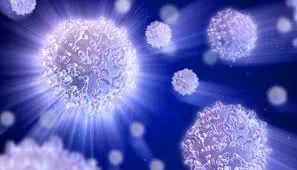
Acupuncture operates based on the philosophy that the body is powered by Qi – a life force energy – that runs along pathways throughout the body called meridians. Pain and diseases are caused by blockages in these pathways that prevent Qi and nutrient-rich blood from reaching and adequately supplying the organ systems of the body. When the body is balanced and functioning smoothly, the immune system is able to detect and eradicate pathogens on its own. Our bodies do this all the time. While genetic predisposition may increase some people’s cancer risk, the truth is everyone is susceptible to the formation of cancerous cells. When the body is healthy, it can sweep away mutated cells. But when the body is in a weakened state and energies are blocked, cancer cells are able to take hold, multiply, and grow.
Acupuncture can help relieve symptoms caused by the disease itself, as well as the side effects of treatment, including but not limited below:
- neuropathy
- pain
- nausea/vomiting
- dry mouth
- fatigue
- insomnia
- depression & anxiety
In addition to providing palliative care for these symptoms, acupuncture treatment works on a deeper level to strengthen Qi, revitalize blood, and restore healthy functioning to the organ systems. The combination of acupuncture treatment to stimulate specific points and herbs to act on chemical/elemental imbalances can approach the root cause of the abnormal cell growth.
Acupuncture for Cancer Treatment Side Effects
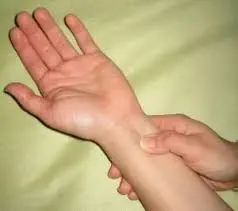
The most common side effects of cancer treatments such as chemotherapy, radiation, and immunotherapy are gastrointestinal in nature. Nausea, vomiting, abdominal pain, and diarrhea are caused by the medications involved, which may be administered intravenously or by mouth. The extent to which a patient feels nauseated depends on many factors: the location of the cancer being treated in the body, the dosage of the medications, the timing of administration, and a person’s prior susceptibility to nausea and vomiting. Treatment for tumors in the brain, liver, or gastrointestinal tract–such as esophageal, pancreatic, colon, or stomach cancers–is more likely to cause vomiting. Women, in general, are more likely to experience severe nausea. Antiemetic drugs or stomach acid-reducing medication like Esmeprazole can sometimes help with the nausea, but they don’t work in many cases. One controlled study showed that acupuncture given to patients undergoing chemotherapy reduced the duration and frequency of unpleasant gastric upsets. The TCM providers in this case used acupuncture points to reduce spasming of the stomach and intestines, while strengthening liver and spleen function to improve digestion and absorption. The patients given acupuncture ended up spending less time in the hospital.
Using acupressure point PC6, located below the wrist on the inner forearm in between the two tendons, is very effective for controlling nausea. Relief of retching and vomiting helps patients withstand chemotherapy sessions better and helps keep appetite and proper nutrition up.
Another side effect of chemotherapy is neutropenia, or low white blood cell count. This is especially prevalent amongst patients being treated for bone marrow cancers, such as leukemia, lymphoma, and multiple myeloma. The low level of bacteria-fighting immune cells puts people at higher risk for developing infections during the course of their treatment, especially invasive candida infection. A study involving women with ovarian cancer suggested that acupuncture treatment helped patients maintain higher levels of white blood cells and neutrophils. The study also suggested that acupuncture measurably reduced cortisol levels, positively impacting patients’ stress.
Protecting cancer patients from side effects of chemotherapy such as neutropenia and severe nausea allows them to adhere more closely to their treatment programs, which can improve outcomes.
Acupuncture for Late Stage Cancer Pain and Neuropathy
Pain is, unfortunately, the most pervasive symptom experienced by people with cancer, yet this pain is often inadequately treated with analgesics. Recent epidemic-level problems with opiate use mean that doctors and patients are hesitant to use these powerful medications, which can lead to addiction. Acupuncture offers an alternative method for reducing pain naturally, without any additional risks involved.
Cancer pain can be pathophysiologically caused by tumorous growths themselves causing compression around other tissues and nerves. It can also be caused by secondary tissue damage created by chemotherapy, radiation, hormone therapy, or surgeries. When nerves are damaged, neuropathy pain can result.
To manage all of the different types of pain, patients are often prescribed some combination of acetaminophen, opiates, anti-inflammatories, anticonvulsants, corticosteroids, and antidepressants. All of these can cause serious side effects, and some patients will build up a tolerance to the medications, reducing their efficacy. Some people develop a dependence or addiction.
Pain, as a subjective experience, affects emotional and mental health as much as it does the physical body. Pain can be amplified by the very real fear that it will only get worse or never end. Adequate pain management is vital to keeping a positive frame of mind and hopeful attitude. When pain is reduced, attention and energy can be freed up for increased healing and motivation to maintain healthy behaviors that will improve the chances for recovery and prevent recurrence.
Most people who seek out acupuncture do so for chronic pain conditions. While much of how TCM works is still unproven by scientific study, many research studies have shown that acupuncture is an effective modality for pain relief, such that it is now widely accepted as an adjunct by the medical community. Acupuncture treatment can be used on its own to help alleviate pain, or in addition to pain medications, in which case it will help both to address the pain and to mitigate the side effects of the drugs.
Top 3 Tips for Cancer Prevention

TCM is preventative medicine. It is always best to manage lifestyle for maximum health in order to prevent disease from forming in the first place. While some people are more at risk for developing certain kinds of cancer than others, everyone can benefit from healthy habits that reduce these risks. Regular acupuncture treatments help balance Qi and maintain good flow between the organ systems of the body. But it is up to each individual to eat in such a way that the cells receive abundant nutrient-rich blood, to avoid toxins whenever possible, and to move the body frequently and with intention.
- Green tea contains chemicals called polyphenols, especially EGCG. These antioxidants inhibit the kind of cell damage that leads to cancer growth. Green tea has less caffeine than coffee or black tea, and can be drunk throughout the day.
- Exercise – Many studies have shown that increased physical activity reduces the risks of specific types of cancer, such as: pancreatic, endometrial, breast, colon cancer, esophageal, kidney, and stomach cancer. Exercise prevents cancerous growth by helping to regulate hormone levels, preventing high blood sugar, insulin resistance, and obesity, and reducing inflammation throughout the body.
- Healthy diet – A well-rounded food program lowers the risk of cancer. Focus on whole foods such as fruits, vegetables and whole grains. Salmon is full of omega-3 fatty acids that have been shown to help fight cancer. Other fish that can help reduce the risk of endometrial cancer in women include halibut, sardines and tuna. Cruciferous vegetables are especially full of nutrients and fiber. Included in this family of vegetables are broccoli, cauliflower, radishes, brussel sprouts, kale, cabbage, and bok choy. Cruciferous vegetables are high potent anti-cancer phytochemicals. Studies have shown that this vegetable group has the ability to stop the growth of cancer cells for tumors in the breast, uterine lining, lung, colon, liver, and cervix. And studies that track the diets of people over time have found that diets high in cruciferous vegetables are linked to lower rates of prostate cancer. Eat fruits and vegetables raw or only lightly steamed so they retain their cancer fighting phytochemicals. Go for at least one of these greens on a daily basis: arugula, beet greens, bok choy, broccoli, brussel sprouts, cabbage, Napa cabbage, collard greens, daikon, rutabaga, chard, watercress, pea shoots, spinach.
Acupuncture Near Me for Cancer Support
Acupuncture provides palliative care for the many intense discomforts of cancer and cancer treatment. But TCM goes beyond pain relief. Regular acupuncture treatments combined with lifestyle changes can improve patients’ ability to defeat cancer now, and to prevent cancers in the future.
When you or a loved one is fighting cancer, building a team of doctors who will work together to provide integrative health care can increase the chances of survival and recovery.
*This article is for education from the perspective of Traditional Chinese Medicine only. The education provided by this article is not approved by FDA to diagnose, prevent, treat and cure human diseases. It should not stop you from consulting with your physician for your medical conditions. Traditional Chinese Medicine is based on Qi, which is an invisible force that usually cannot be observed by modern science. Because science focuses on testing ideas about the natural world with evidence obtained through observation, these aspects of acupuncture can’t be studied by science. Therefore acupuncture and Chinese herbs are often not supported by double-blind, randomized trials, and they are considered alternative medicine therapies in the United States.
How to Treat Anxiety With TCM and Acupuncture
By Qineng Tan, L.Ac., Ph.D. and Xiaomei Cai, L.Ac., Ph.D.

Everyone experiences feelings of anxiety or apprehension at times. Sometimes people suffer from excessive feelings of dread or panic, even when they are not in immediate danger. In some cases, the complex cascade of emotional and physical sensations encompassed by the term Anxiety is so pervasive that it becomes a chronic mental health condition. TCM and Acupuncture offer a natural, highly effective treatment option to reduce anxiety symptoms.
We are currently living in a particularly harsh reality in which human life is filled with setbacks and potential danger. There is always a chance that something bad might happen to you or someone close to you. In recent weeks, the coronavirus pandemic has understandably created a pervasive sense of worry amongst the population, and the numbers of people filling prescriptions for anxiety-related medications, antidepressants and sleep aids has increased dramatically.
Anxiety is clinically defined as a persistent feeling of worry, accompanied by physical sensations such as heart palpitations, dizziness, and sweating. Sometimes people describe it as being similar to the sensations you feel when you’ve tripped and you’re falling, except that the scary feeling persists for a long time; it doesn’t go away even when nothing is happening. Anxiety disorder is a very common mental health condition experienced by people of all ages; every year about 20% of Americans seek medical help for symptoms related to anxiety.
If you are feeling heightened levels of distress that are affecting your ability to sleep, focus, or care for yourself or others, please be assured that help is available. Acupuncture and other TCM treatment modalities offer a safe alternative to pharmacological drugs that can cause side effects and potentially lead to dependency and withdrawal symptoms. A qualified acupuncturist will conduct an in-depth consultation and create a program designed to specifically address each patient’s individual combination of symptoms and life situation.
What Are the Symptoms of Anxiety?
Doctors classify types of anxiety disorders into several sub-categories, including Generalized Anxiety Disorder (GAD), Social Anxiety, Obsessive-Compulsive Disorder (OCD), Post Traumatic Stress Disorder (PTSD), Phobia-related Disorders, and Separation Anxiety (anxiety in children).
The most common symptoms of various types of Anxiety include:
- Rapid or labored breathing
- Rapid heartbeat or tachycardia
- Feeling “on edge” or irritable
- Sweating
- Difficulty concentrating
- Memory loss
- Difficulty sleeping
- Fatigue
- Stomach upset
- Anxiety headache
Each person will present with a unique combination of symptoms and sensations, along with her own “triggers” or things that seem to cause the symptoms to manifest. Most people who seek medical care for their anxiety symptoms are either prescribed psychiatric tranquilizing medications such as Xanax or Atavan, referred for psychotherapy, or both. Some doctors use antidepressants such as Zoloft, Lexapro or Prozac to treat anxiety. These Selective Serotonin Uptake Inhibitors (SSRIs) may help reduce symptoms in some cases, but all of these types of medications can cause side effects and lead to dependency. TCM and Acupuncture treatments not only address specific symptoms of anxiety, but address the root causes of the disorder.
TCM Deals With All Types of Anxiety Disorders

Anxiety, like depression and other mental health disorders, carries the disadvantage of being “invisible.” Other people, and even many medical professionals, simply can’t see physical evidence of the problem, and can’t empathize with the suffering involved. Well-meaning family members and friends might offer suggestions to “calm down” or reminders to stay positive, all with the implication that nothing is really wrong or that “it’s all in your head.” Being plagued with constant self-doubt further amplifies the problem. Anxiety is a real health issue, and TCM offers effective modalities to address it.
Modern medicine has only recently begun to make the connection between emotional and physical maladies. Traditional Chinese Medicine (TCM), on the other hand, has acknowledged for centuries that the mental, emotional and physical experiences of human beings are all inextricably linked. Sometimes a physical injury or traumatic experience can set the stage for a mental health problem. For example, a car accident that creates even minor injuries to the body might trigger future panic attacks, phobias, or Post Traumatic Stress Disorder (PTSD). Other times, a mental health condition like chronic Generalized Anxiety Disorder (GAD) can affect sleep, eating, and other behaviors to such an extent that a person becomes more susceptible to illness and disease. It would not be surprising to see an increase in cases of Agoraphobia (fear of leaving one’s home) and Obsessive-Compulsive Disorder (OCD, which sometimes causes compulsive hand-washing and cleaning as well as hoarding behaviors) as a result of the current coronavirus pandemic. People who experience multiple panic attacks may be diagnosed with panic disorder.
Anxiety disorders already tend to lead to feelings of isolation. Now that most people are spending far more time alone or sequestered with family members and roommates, already existing feelings of fear may be exacerbated. People who have never had to cope with anything beyond normal, mild anxiety may suddenly find themselves feeling real panic for the first time. Additionally, some might feel guilty or ashamed about reaching out for help for these problems when there are so many other people hurting for more apparent reasons. But there is real help for anxiety, and getting that help during this time of crisis makes sense. There is no need to suffer. Find acupuncture near me to address anxiety symptoms and the root causes before the problem becomes more severe and chronic.
Acupuncture for Controlling Anxiety
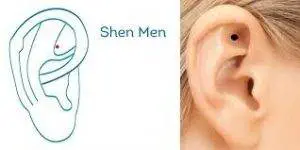
Conventional medicine generally attributes anxiety disorders to abnormal functioning of the brain and nervous system. The feelings associated with anxiety – the emotional sense of worry, the breathlessness and restlessness of the body, the behavioral instincts to freeze or to run – are all exaggerated responses to stress. Stress is the body’s natural reaction to perceived dangers in the environment. When something threatens us, the sympathetic nervous system kicks into gear, and the adrenal glands pump out the hormones that flood the body with energy–what is often referred to as the “fight or flight” response. Normally, once the threat has passed, adrenaline will take some time to move through the body and then dissipate, and a feeling of relaxation is eventually restored. When a person has an anxiety disorder, this hormone release can be triggered by thoughts, and the fear of the physical response itself becomes a part of the vicious cycle.
Acupuncture treatment has been shown to act upon the nervous system, facilitating the release of serotonin, endorphins and noradrenaline, all of which contribute to relaxation and a sense of well-being. Stimulation of specific points have been clinically proven to reduce perceived feelings of anxiety as well as reducing the heart rate and blood pressure of patients. Auricular acupuncture, which specifically uses points on the ear, has been shown to be effective for anxiety. This method is particularly useful, as patients can be fitted with a tiny needle that can be stimulated with gentle pressure as needed to help alleviate symptoms as they appear.
Auricular acupuncture has been used for thousands of years, not only in China, but all over the world. Modern critical analysis has demonstrated that auricular acupuncture affects the parasympathetic nervous system in ways that help alleviate pain and reduce anxiety symptoms. Electro-stim acupuncture, or electro-acupuncture, is another effective modality used by TCM doctors.
How Does Acupuncture Benefit Anxiety Relief of Panic Attacks?
One of the great advantages of acupuncture treatment over conventional methods of talk therapy and pharmacological intervention is that it has an immediately discernible effect. Patients often leave an acupuncture session with a deep sense of calm and relaxation. Reports of improved sleep usually follow quickly. In addition, the long-term effects of regular acupuncture sessions are cumulative, and people report a sustained decrease in episodes of anxiety and panic attacks.
One controlled study compared groups of patients treated with a regimen of acupuncture with moxibustion to a group prescribed a type of benzodiazepine medication. The results showed higher efficacy in reducing anxiety symptoms among the patients receiving acupuncture.
TCM Doctors’ Top 10 Suggestions on Self Care for Anxiety
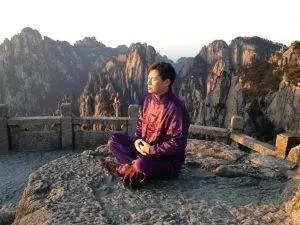
Here are some natural remedies for anxiety you can utilize at home. With consistent practice, these habits will help alleviate stress and reduce anxiety symptoms.
- Meditation for anxiety– Those struggling with anxiety may well be tired of hearing well-meaning friends suggesting they “Relax!” or “just breathe.” But studies have shown that regular meditation practice can significantly reduce anxiety. There are many methods; it is important to find a method that works for you. This study suggested mindfulness meditation may be especially effective.
- Waterfall Meditation – In this exercise, imagine yourself at the base of a waterfall. As you breathe in and out, picture the water gently raining down on you, trickling down each route until the tension inside you releases, relaxing parts of your body one section at a time. Allow your entire body to enter a peaceful and relaxed state. Let the image of the water wash away any stress or anxiety that burdens you.
- Physical Exercise – By now it has been well documented that regular exercise is good for health in every way, lowering the risks of all types of chronic disease. Movement helps reduce anxiety symptoms by reducing adrenal reactivity, increasing the output of endorphins and endogenous (naturally produced in the body) opioids, and even stimulating the growth of new brain cells. It is also suggested that exercise functions as a type of exposure therapy. When people become more used to the sensations of an increased heart rate, heavier breathing, and sweating due to cardiovascular activity, it increases their tolerance for these same symptoms when they appear as part of an episode of anxiety. If you are able to go for a walk or run while following social distancing guidelines, it is especially helpful to get some sun exposure, as well. Put on some music or a favorite workout video; rhythmic movement that engages the large muscle groups provides great benefits.
- Tai Chi and Chi Gong –These ancient traditional forms are “moving meditations” that work upon the endocrine circulatory, and nervous systems to balance energies and strengthen Qi.
- Good Eating Habits – Caffeine, sugar, processed and spicy foods can trigger anxiety. Complex carbohydrates like brown rice, barley, quinoa and oats are relaxing, as are nuts and chickpeas, which contain tryptophan. Now is a good time to become more intimately involved with preparing dishes at home, and this process can also be soothing: a mindfulness exercise that results in a healthy meal! Your TCM provider will provide more detailed instructions for a nutrition program for your specific situation.
- Stress Reduction –Reducing stress goes hand in hand with reducing anxiety. Especially now, carefully manage your daily activities so as not to become overwhelmed. Allot a short period of time for checking the latest news and catching up with friends; then consciously disengage from screens and virtual realities. Social media has already been called into question for its apparent increase of anxiety among teenagers, but it has a real impact on people of all ages. Comparing your situation and surroundings to the carefully curated content you see on sharing platforms can make you feel pressure, shame, a sense of inadequacy. Commit to being grounded in your immediate surroundings and grateful for the blessings that are in your life right now. Recognize that, while it is important to educate yourself about the novel coronavirus, many of the opinions being expressed online are not informed and are designed to provoke an emotional reaction. Avoid reading comments that you know might be triggering.
-

Acupuncture treatments can alleviate sleep anxiety. Sleep Better to Combat Sleep Anxiety – Repetitive, OCD intrusive thoughts and restless energy within the body can make sleeping difficult when you are experiencing sleep anxiety. Cortisol–another stress hormone–levels tend to rise in the evening, and many people register this sensation as anxiety at night. Eating simple carbohydrates like sweets or chips suppresses cortisol and offers a temporary feeling of relaxation. But consuming these foods or alcohol to artificially reduce stress leads to less restful sleep later. Dr. Tan and Dr. Cai can offer many suggestions for how to modify your habits to achieve a better night’s sleep.
- Learn a Language – Distance learning has quickly become an integral part of our lives. Many people are using their time at home to learn new skills. Now is a great time to learn a new language. Studying and practicing will help you focus your mind and instill a sense of accomplishment to help relieve anxiety.
- Structure Your Days – Even though daily life has taken an unusual turn, maintaining a consistent schedule helps keep hormone and energy levels more consistent. Rise and retire at about the same time each day. Eat regular meals. Set aside hours for work and much-needed time for rest and relaxation. Creating a structure for your life helps you feel that you are controlling what you can.
- Cognitive Behavioral Therapy (CBT) 5-4-3-2-1 Grounding Exercise – Use this exercise when feeling anxious or suffering a panic attack. This helps you ground yourself in reality by actively using your five senses. Look for the things, and then name them out loud.
- 5 – Count five things in your immediate environment that you can SEE.
- 4 – Count four things near you that you can TOUCH.
- 3 – Count three things near you that you can HEAR.
- 2 – Count two things you can SMELL.
- 1 – Count one thing you can TASTE.
How to Use 3 Acupressure Points for Anxiety Relief
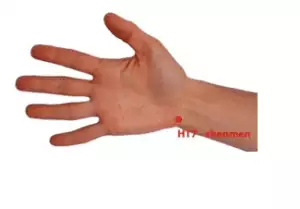
Acupressure is a technique patients can use anytime for symptom relief. Apply gentle, firm pressure to these points.
- Liver 3 is a grounding point that helps redirect rising energy downward. Located between the first and second toes, you will find a very tender spot. Try applying gentle pressure here to alleviate irritability, headaches, TMJ, and anxiety.
- You have probably seen the bands people sometimes wear around their wrists to prevent nausea. These are designed to put pressure on Pericardium 6, which quells queasiness. The point is located between the two tendons on your wrist, two fingers up from the wrist crease. Pressing on it is immediately calming. It helps to open the chest, as well, so if you feel tightness in the chest or shallow breathing, use this point.
- Shen Men, called the “Spiritual gate” point, releases heart fire, excitement, anger, irritation and anxiety.
Look for Acupuncture near me in Los Angeles for Anxiety
At Art of Wellness, one of the top 20 clinics in greater Los Angeles selected by experts, we are concerned that so many people are feeling the weight of these difficult times and having to go it alone. But we are here, committed to helping people whether they are suffering possible symptoms of COVID-19 or intense anxious feelings related to fear of the virus. Please do not hesitate to reach out to us at 310-451-5522 or email us at myartofwellness@gmail.com if you or someone you love is battling anxiety.
*This article is for education from the perspective of Traditional Chinese Medicine only. The education provided by this article is not approved by FDA to diagnose, prevent, treat and cure human diseases. It should not stop you from consulting with your physician for your medical conditions. Traditional Chinese Medicine is based on Qi, which is an invisible force that usually cannot be observed by modern science. Because science focuses on testing ideas about the natural world with evidence obtained through observation, these aspects of acupuncture can’t be studied by science. Therefore acupuncture and Chinese herbs are often not supported by double-blind, randomized trials, and they are considered alternative medicine therapies in the United States.
How to Treat Lower Back Pain with TCM and Acupuncture
by Qineng Tan, L.Ac., Ph.D.
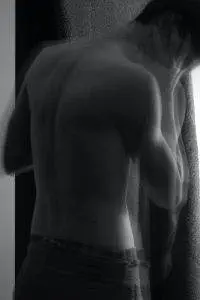
That sudden, scary sensation of pulling in your lower back that lets you know you’re in for more pain later. The nagging, daily ache that develops over time. Lower back pain can really feel like a burden, holding you back from enjoying your life. If you are searching for how to reduce low back pain, Acupuncture and TCM can provide real relief.
Pain in the lower back is one of the most common complaints heard by healthcare practitioners. The vast majority (80%) of adults experience at least one episode of low back pain at some point in their lives. For some people, lower back pain becomes a chronic condition. It is the second most common cause of disability among adults in the United States.
This article will address the types and common causes of lower back pain, how to treat low back pain with acupuncture and TCM, and eight excellent suggestions for ways you can reduce low back pain and prevent flare-ups with lifestyle change and self care.
How to Treat Lower Back Pain – A Common but Complicated Condition
Lower back pain presents a challenge for physicians, because in many cases, there is no clearly discernible cause. Imaging scans may help us get a picture of structural damage to the spine, but they do not tell us the whole story. Pain is not just about structural or mechanical problems in the body. The problem may be mechanical, but it may also be chemical, emotional, behavioral, sociological, or a combination of any of these.
The American College of Physicians has just recently issued new guidelines regarding the treatment of lower back pain specifically advocating that doctors and patients first choose natural and alternative therapies, such as acupuncture and massage, over pain medications.
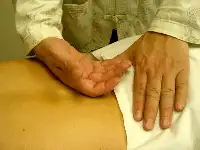
Acupuncture does not only address the immediate source of pain. TCM treats the whole person. An acupuncturist will study the different factors of each patient’s unique presentation of symptoms in making a diagnosis and designing a course of treatment. This will include not only acupuncture, but herbal formulae to support the healing of the body, and specific exercise and nutrition advice to strengthen the whole body from the inside. Lower back pain can take its toll on a person’s psychological outlook. Stress and depression can turn an acute problem into a chronic one. Treating the underlying causes of an acute condition can prevent it from becoming recurrent or chronic.
Types of Lower Back Pain
Most patients experience a generalized, nonspecific kind of lower back pain. These may be related to muscle strain or stiffness, repetitive movements or unfavorable sitting or sleeping positioning. Other conditions are based on specific injuries or pathologies. Some types of pain, such as sciatica, are rooted in the nerves, possibly due to pinching or other damage, and causing hip pain and pain that radiates down the leg. Sometimes the sensation is more like tingling or numbness than fiery pain.
In over 30 years of practice in treating all different types of lower back pain, we have often seen patients who had only minor structural problems but were experiencing severe pain. Many patients who have had surgery to correct a problem; their scans may show that the problem has been “fixed”–but they are still in a lot of pain. In other words, a person’s experience of pain or loss of mobility may not correspond to what we see in an image.
Common conditions leading to back pain include (but are not limited to):
- Degenerated disc
- Bulging or herniated disc
- Spinal stenosis
- Spondylolisthesis (slipped disc)
- Spinal scoliosis
- Arthritis
- Muscle strain
- Muscle spasm
- Pinched nerves
- Nerve damage
- Kidney stones or gallstones
- Digestive issues (constipation
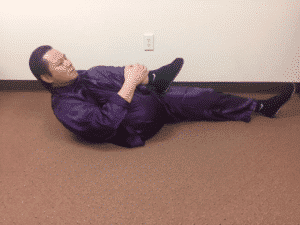
Eight Tips for Self Care to Reduce and Prevent Lower Back Pain
With TCM, we aim for long-term, lasting results. At the same time, we guide the patient in vital lifestyle improvements, such as regular de-stress meditation, gentle exercise such as Tai Chi or yoga, and an anti-inflammatory diet.
Here are some specific things you can do at home to help enhance the effects of acupuncture treatment and reduce lower back pain:
- Moderate exercise: walk, swim, Tai Chi, yoga, Pilates, and gentle stretching. It might be tempting to spend a lot of time in bed when you have back pain, but in most cases, lack of movement does more harm than good.
- Avoid lifting anything heavy; always remember to bend from the knees and not from the back when lifting any kind of weight. Forward bends as part of an exercise routine can also be aggravating.
- Weight control
- Anti-Inflammatory Diet: avoid coffee, spicy foods, nightshade vegetables (tomato, potato, eggplant and bell pepper). For more anti-inflammation information , read How to reduce and prevent inflammation

Strengthen the lower back - Change posture during your work, move around for a few minutes every hour, at least.
- Cold and Heat: Use a cold compress for the first three days if there is an acute injury or any time right after exercise. Use heat 3-5 times per day for chronic pain.
- Make sure your mattress is medium firmness and comfortable.
- Do stretches and gentle strengthening exercises specifically for the lower back. Also work on strengthening all the core muscles. Remember that the lower part of the spine is actually in the center of the body. Using the abdominal muscles to help you move and lift things takes the strain off of the back muscles.
Acupressure for Low Back Pain
Using your opposite thumb or forefinger, locate the crevice between the bones of your 4th and 5th finger, just beneath the knuckles. Press deeply until you feel tenderness there. Hold the pressure while you gently but vigorously move and stretch your lower spine and hips. Then, drag your thumb or finger down, finding another crevice just above the base where the 4th and 5th metacarpal bones meet. Apply pressure, again, while wiggling and turning from the lower back. This will help release tension and tightness and relieve pain.
What Do I Do If the Above Does Not Work?
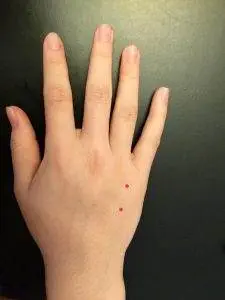
If you are in pain, and nothing has helped, you may be wondering how to find acupuncture near me. Look for an acupuncturist who is board certified in your state. A good acupuncturist is highly trained and has experience in integrative medicine, so that they can work with your primary physician if needed. At Art of Wellness, we suggest a first appointment should include an in-depth consultation and exam. Usually an acupuncturist will recommend a course of treatment that include sessions two or three times per week for the first few weeks, then will reevaluate to keep track of progress and improvement. Look for a place where you feel comfortable, listened to, and able to relax. Your acupuncturist will make recommendations for TCM herbal formulae and dietary changes that will help your condition. These may seem difficult to follow at first, but they will help your body heal better and more quickly. New healthy habits can help prevent your lower back pain from coming back.
